Lenses for Canon Cameras Category
Our Lenses for Canon Cameras category covers the latest and best Canon lenses you can buy in 2025.
Latest Canon Lenses Posts
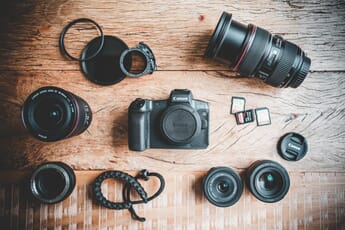 The 10 Sharpest Lenses for Canon Cameras in 2024 Capture breathtaking images with the sharpest lenses for Canon cameras! We share 10 incredible options for hobbyists and professionals.
The 10 Sharpest Lenses for Canon Cameras in 2024 Capture breathtaking images with the sharpest lenses for Canon cameras! We share 10 incredible options for hobbyists and professionals.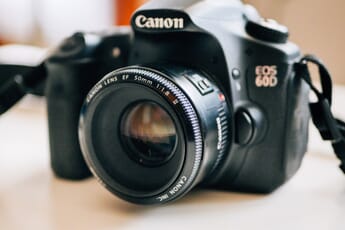 The Best 50mm Lenses for Canon: Top 5 Picks in 2024 We share the best 50mm lenses for Canon cameras. Capture incredible portraits, event shots, street photos, and more!
The Best 50mm Lenses for Canon: Top 5 Picks in 2024 We share the best 50mm lenses for Canon cameras. Capture incredible portraits, event shots, street photos, and more!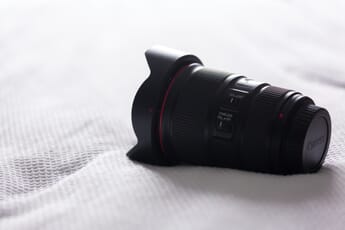 10 Best Macro Lenses for Canon Cameras in 2024 Comparing the best macro lenses for Canon cameras available in 2024. We review an array of options for DSLR, EOS R, and EOS M cameras.
10 Best Macro Lenses for Canon Cameras in 2024 Comparing the best macro lenses for Canon cameras available in 2024. We review an array of options for DSLR, EOS R, and EOS M cameras.Canon Lenses Posts Ranked by Popularity
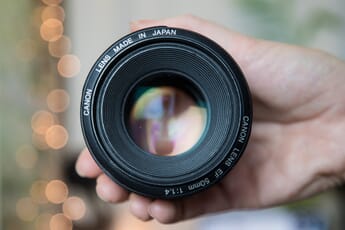 Canon 50mm 1.4 vs 1.8 Comparison Canon 50mm 1.4 vs 1.8 Comparison – What are the differences between these two popular Canon prime lenses and which is the better choice?
Canon 50mm 1.4 vs 1.8 Comparison Canon 50mm 1.4 vs 1.8 Comparison – What are the differences between these two popular Canon prime lenses and which is the better choice?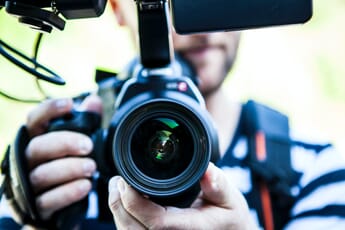 The Best Canon Lenses for Video Making Finding a video lens can be tricky. Use our Canon video lens guide to pick the perfect product. Includes EF and RF lenses.
The Best Canon Lenses for Video Making Finding a video lens can be tricky. Use our Canon video lens guide to pick the perfect product. Includes EF and RF lenses.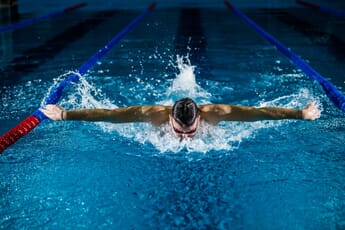 10 Best Canon Sports Lenses: Our Top Picks for Stunning Sports Photos Find the best Canon sports lenses in 2024. Photograph high-energy sporting events in crisp, clear detail.
10 Best Canon Sports Lenses: Our Top Picks for Stunning Sports Photos Find the best Canon sports lenses in 2024. Photograph high-energy sporting events in crisp, clear detail.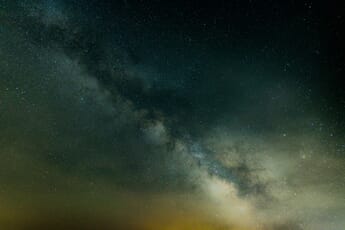 Best Canon Lenses for Astrophotography Find the best Canon lenses for astrophotography so you can take superb photos of the night sky, planets, and constellations.
Best Canon Lenses for Astrophotography Find the best Canon lenses for astrophotography so you can take superb photos of the night sky, planets, and constellations.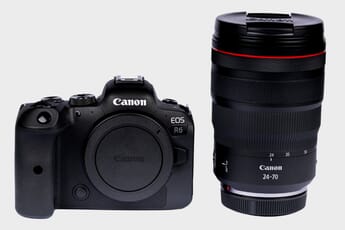 The Best 24-70 Lens for Canon: 4 Great Models for Canon Photographers Discover the best 24-70 lens for Canon users. Whether you're on a budget or looking for the best of the best, you'll find the perfect lens for your needs!
The Best 24-70 Lens for Canon: 4 Great Models for Canon Photographers Discover the best 24-70 lens for Canon users. Whether you're on a budget or looking for the best of the best, you'll find the perfect lens for your needs!Discover Canon Lenses on PhotoWorkout
Welcome to the Canon Lenses category on PhotoWorkout.com, your ultimate destination for all things related to Canon lenses. This category presents an extensive selection of articles, guides, and reviews that will help you navigate the vast world of Canon lenses.
For those with specific needs, delve into more targeted content. We have curated lists of the Best 50mm Lenses for Canon, and the 10 Best Macro Lenses for Canon in 2025.
Canon lenses are versatile, suitable for a wide range of photography genres. We have you covered whether you’re looking to capture sports, astrophotography or landscapes. Furthermore, if you’re venturing into videography, check our guide on the Best Canon Lenses for Video Making.
Be sure to check out our related categories for more options, including Best-in-Class Lenses, Nikon Camera Lenses, and Sony Camera Lenses. Dive in and find the perfect lens for your Canon camera today!
